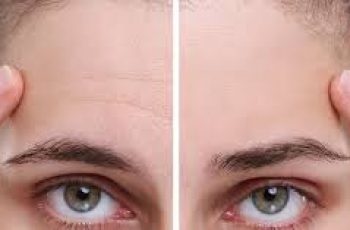
6 Situations When We Recommend You Stop Using Retina
When it comes to skincare ingredients, Retina is undoubtedly one of the most popular. But with that popularity often comes a lot of misinformation. So it can be hard to know when you’re getting the right results, when to stick with it, and when to stop.
Here are five situations when we recommend you stop using Retina. Just for a short time.
You have irritation.
Introducing Retina into your daily routine often comes with a host of side effects for your skin. Maybe it’s detoxification. (More on that here.) But it’s stinging, burning, and severe irritation that are really cause for concern.
You may be using too much and too often. So stop using and reduce usage to once a week. Or not. When your skin really says, “Don’t bother me.”
If you regularly incorporate Retina into your nightly regimen once a week, your skin will still be very radiant. As you build up a greater tolerance to the powerful active ingredient, you can start to gradually increase usage.
If you know you have a sensitive skin type or want to be extra safe, try the sandwich method: apply a nourishing moisturizer before and after a Retinal application to soothe your skin.
You have a sunburn.
Assumed, right? Because you wear sunscreen every day. (No matter what the weather app says.)
Great. We’re glad we fixed that.
In the rare event that you look a little tanned at the end of the day, we recommend avoiding Retinal until your skin has had a chance to heal and your skin barrier is no longer compromised. Applying Retinal to your sunburn will only exacerbate the heat and redness and delay the regeneration of your skin barrier.
Instead, focus on super soothing, soothing, and hydrating ingredients. Don’t reintroduce Retinal into your routine until you’ve spent some time in the repair shop (at least a week). Wait until any redness or flaking has completely disappeared.
You’ve booked a facial.
To avoid discomfort during your facial, it’s best to avoid a Retinal treatment a week before your appointment. Protect your skin from unnecessary post-facial inflammation.
If you’ve recently used retinal, let your aesthetician know so they can reconsider any waxing, peeling, or chemical peeling that may be included in your treatment. It will likely focus on deep hydration and replenishing the skin. (Since you’ve already done the job of removing dead cells at home. There’s no point in using more active ingredients.)
You’ve made an appointment for brow/lip hair removal or laser treatment.
Retinal works. We know that. But while the ingredient helps remove dead skin cells, the new/fresh/glowing skin cells that replace them are more susceptible to irritation from treatments like waxing and lasers.
Using retinal aggressively before a wax or laser appointment can sometimes lead to skin irritation (best case scenario) and cracking (worst case scenario). Using retinal aggressively after a wax or laser appointment may cause a mild burning sensation due to broken skin or opened hair follicles. We don’t want that.
It’s best to suspend the use of the product for a few days before and after a pampering treatment.
You’ve just had skin needling.
In general, after any skin needling treatment, there may be some redness and slight swelling around the treated area, and your face may feel warm. After three to five days, you’ll notice your skin becoming dry and flaky. A completely normal part of the regeneration process.
But! If you start using Retinol again right away, your skin will remain in a highly sensitive state for much longer than planned. Your skin barrier can only withstand so much, so it’s best to avoid using active ingredients (of any kind) until your skin has healed. Your dermatologist will give you stricter guidelines.
You’ve got a baby in your oven.
Retinaldehyde (or more precisely all retinoids) is an ingredient you must avoid during pregnancy and while breastfeeding. Vitamin A plays a vital role in fetal development, which means that using large amounts of Retinol can affect early growth.
We recommend that you consult your doctor to determine the individual needs of you, your skin, and your little one during this time. (Hey! Congratulations, by the way.)
We love Retinol. You know it. It just comes with a lot of ifs and buts. We strongly recommend that you stick with it.


